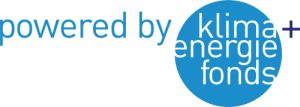The research project “Smart Water City – intelligent usage of water in municipal structures” (April 2019 – April 2021) in cooperation with the University of Innsbruck, Sensor Network Services GmbH, G. Bernhardt’s Söhne Ges.m.b.H and Dipl.-Ing. Karl Grimm aims to equip the urban water infrastructure with ICT systems.
As a result, cities can be made more efficient and sustainable across systems and municipal benefits can be generated. In addition to the reliable supply of fresh water to the entire community, the urban water infrastructure also guarantees the environmentally tolerable disposal of accumulated wastewater and the safe discharge of rainwater runoff.
As part of the project, SENS is building and operating the LoRaWANTM infrastructure, which serves as the basis for the communication of the water meters and development for innovative water management applications.
What are the goals of the “Smart Water City”?
- Implementation of a smart urban water infrastructure
- Implementation of innovative communication technologies for the interaction of the population, planners and decision-makers
- Investigation of the potentials and impacts of civil society interactions with technical water infrastructure (development, multiple use, inspection, maintenance, care)
- Implementation of smart, public and private services for more efficient use of water resources (awareness, burden management, error detection and prevention)
- Connecting urban elements to positively influence the urban climate and study of the long-term effects (smart rainwater retention and targeted use of rainwater for irrigation)
- Smart control and monitoring of green infrastructure
- Impact of citizen participation
- Determination of life cycle costs
- Analyze the use of battery-powered sensors in urban water management

New innovations in the water management sector
The realization of a smart monitoring and controlling network will increase quality in supply reliability (detection of pipe bursts and leakages as well as contamination) and failure probability (controlling drainage operation in sewer systems). Im addition, because of the holistic approach, new intelligent approaches for the operation as well as new operation and maintenance models as multi-actor partnership can be realized, as for example the “smart rain barrel” concept.
The “smart rain barrels” are real time controllable storage volumes for an innovative rainwater management (retention of stormwater for irrigation purposes) installed at household levels. Through interactions of a multitude of smart rain barrels in an urban area, sewer overflows can be reduced.
Two stage testing approach
In the first step, the existing show- and experimental room “Smart Campus” at the University of Innsbruck is extended to determine the impacts of integrative and cross-system applications. The “Smart Campus“ functions as idealised experimental and demonstration object to show and to experience actors of the urban water cycle the functions, potentials and applications of a smart water city. In the second step, an intelligent water supply system is tested and examined in a less idealized urban area. By using the Eco Plus Park Wiener Neudorf, the potential of an intelligent water supply system is determined under real conditions.
This project is funded by the Climate and Energy Fund and implemented via the program “Smart Cities Demo – Living Urban Innovation 2018” https://www.smartcities.at


